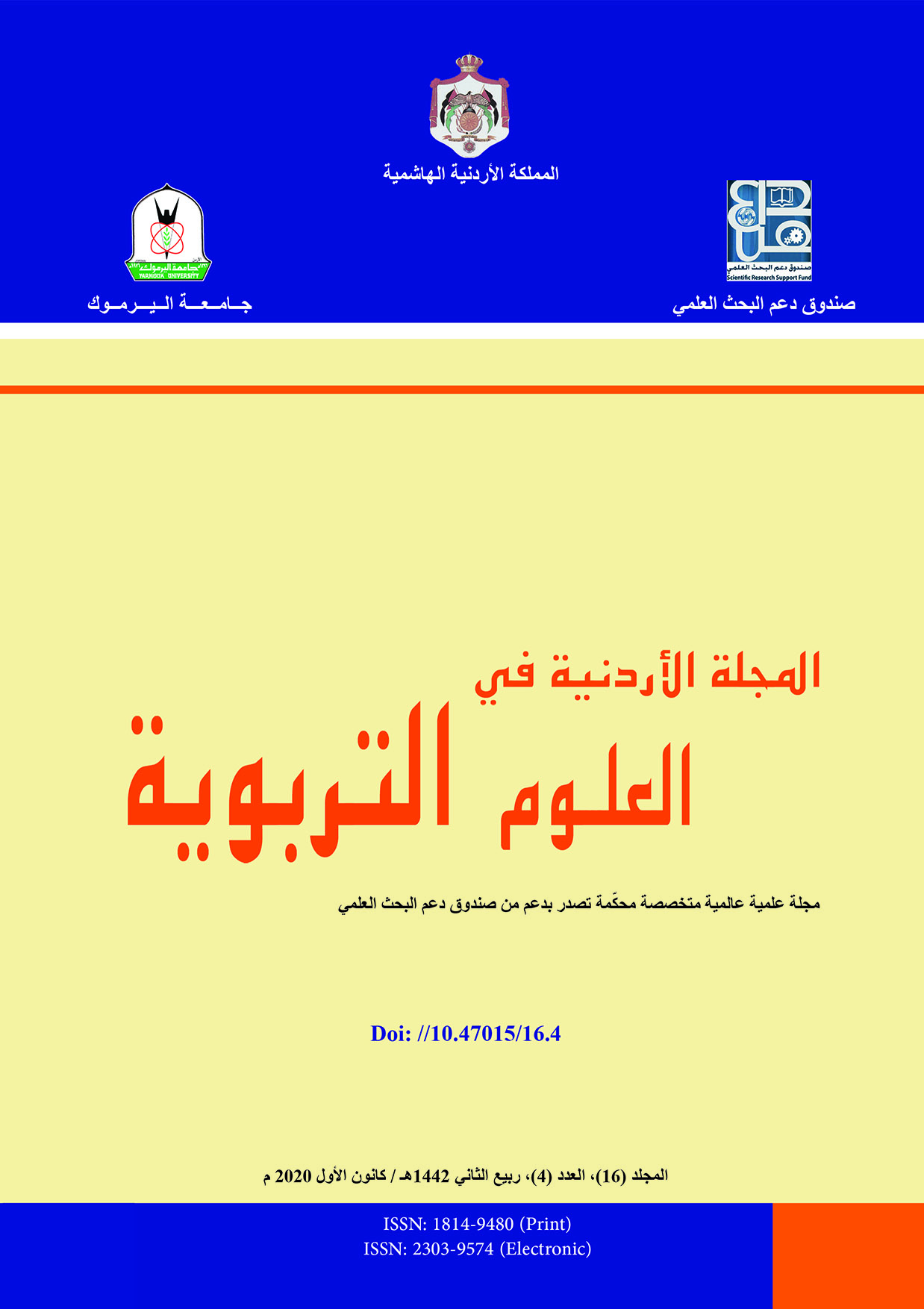القدرة التنبؤية لمركز الضبط بالتعب العقلي لدى المعلمين في لواء الرمثا
الكلمات المفتاحية:
التعب العقلي، مركز الضبط الداخلي، مركز الضبط الخارجي)الملخص
هدفت الدراسة التعرف إلى القدرة التنبؤية لمركز الضبط وبعض المتغيرات (الجنس، والمؤهل العلمي، والخبرة، والتخصص) في التعب العقلي، لدى معلمي ومعلمات لواء الرمثا، حيث تكونت عينة الدراسة من (234) معلمًا ومعلمة، منهم (134) معلمًا، و(100) معلمة، تم اختيارهم بالطريقة المتيسرة. تم استخدام مقياسين، أحدهما للتعب العقلي، والآخر لمركز الضبط. أشارت نتائج الدراسة إلى أن مستوى التعب العقلي بشكل عام كان متوسطًا لدى أفراد عينة الدراسة، كما تبين أن الذكور أكثر تعبًا من الإناث، وأن أصحاب المؤهلات العلمية (ماجستير فأكثر)، وأصحاب الخبرات الطويلة، ومدرسي المواد العلمية أكثر تعبًا من غيرهم.
كما تبين أن النمط السائد لدى أفراد عينة الدراسة هو مركز الضبط الخارجي، وتبين كذلك أن مركز الضبط الداخلي هو السائد لدى كل من: الذكور، وحملة المؤهل العلمي الأقل من الماجستير، وأصحاب الخبرات الطويلة. فيما يسود نمط مركز الضبط الخارجي، لدى كل من: الإناث، وحملة الماجستير فأكثر، وأصحاب الخبرات المتوسطة، والتخصصات العلمية. وأفرزت نتائج تحليل الانحدار الخطي التدريجي (Stepwise) أن مركز الضبط، والجنس، والتخصص فسّرت مجتمعة ما قيمته (26.9%) من التباين في التعب العقلي، حيث تبين أن مركز الضبط يفسّر ما قيمته (17.3%) من التباين في التعب العقلي، فيما يفسّر الجنس (6.1%)، والتخصص (3.5%) من التباين في التعب العقلي

